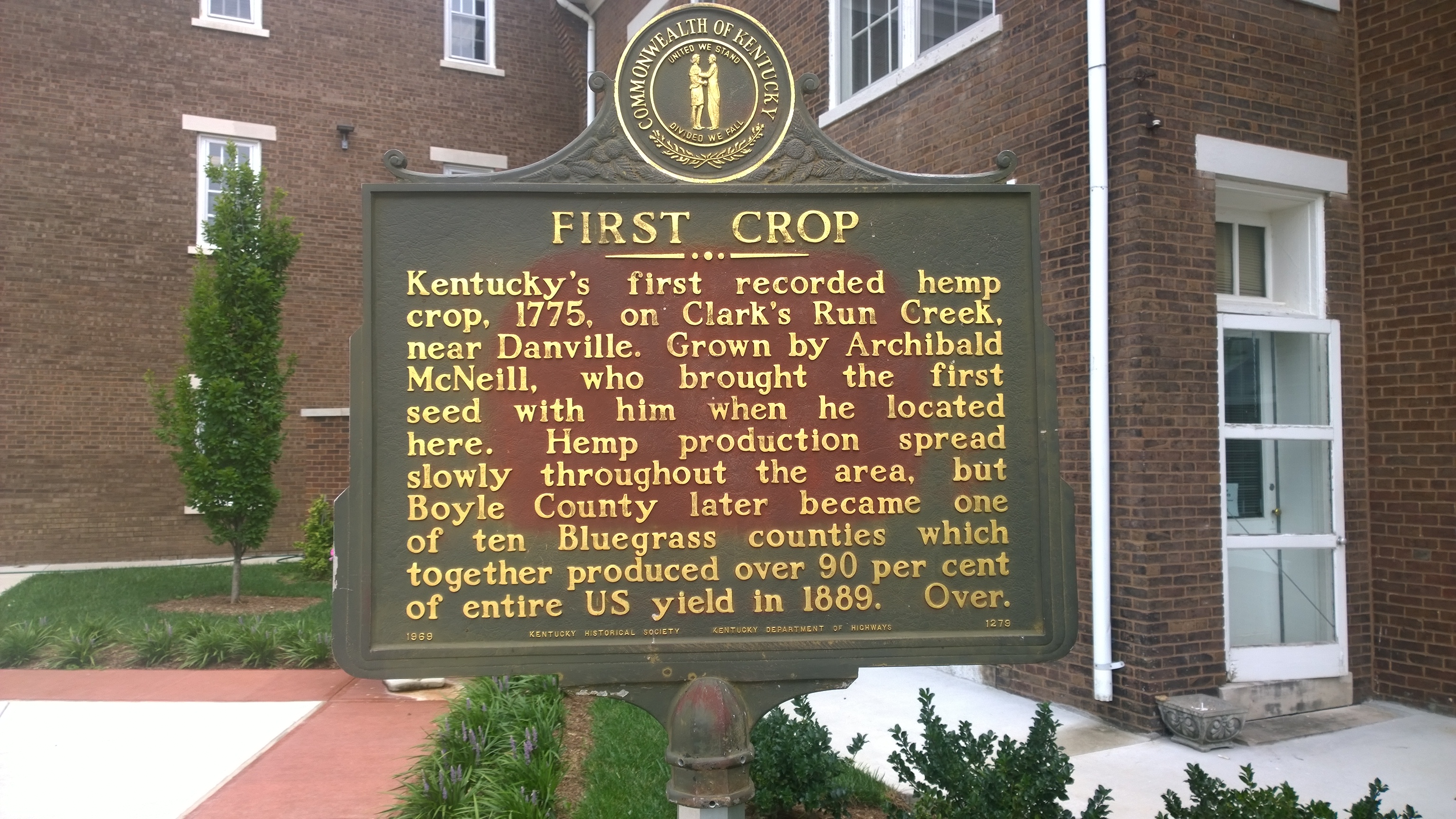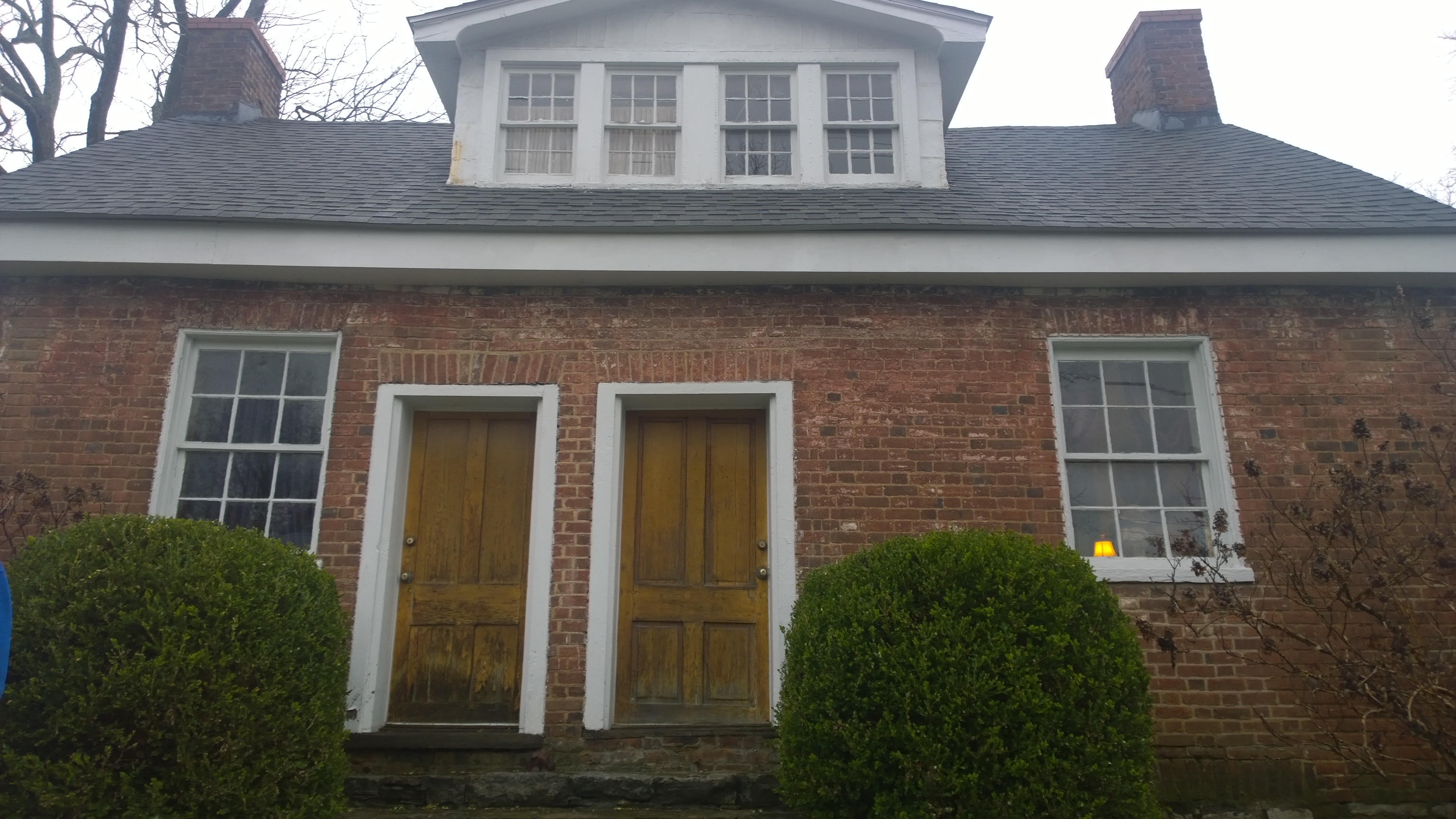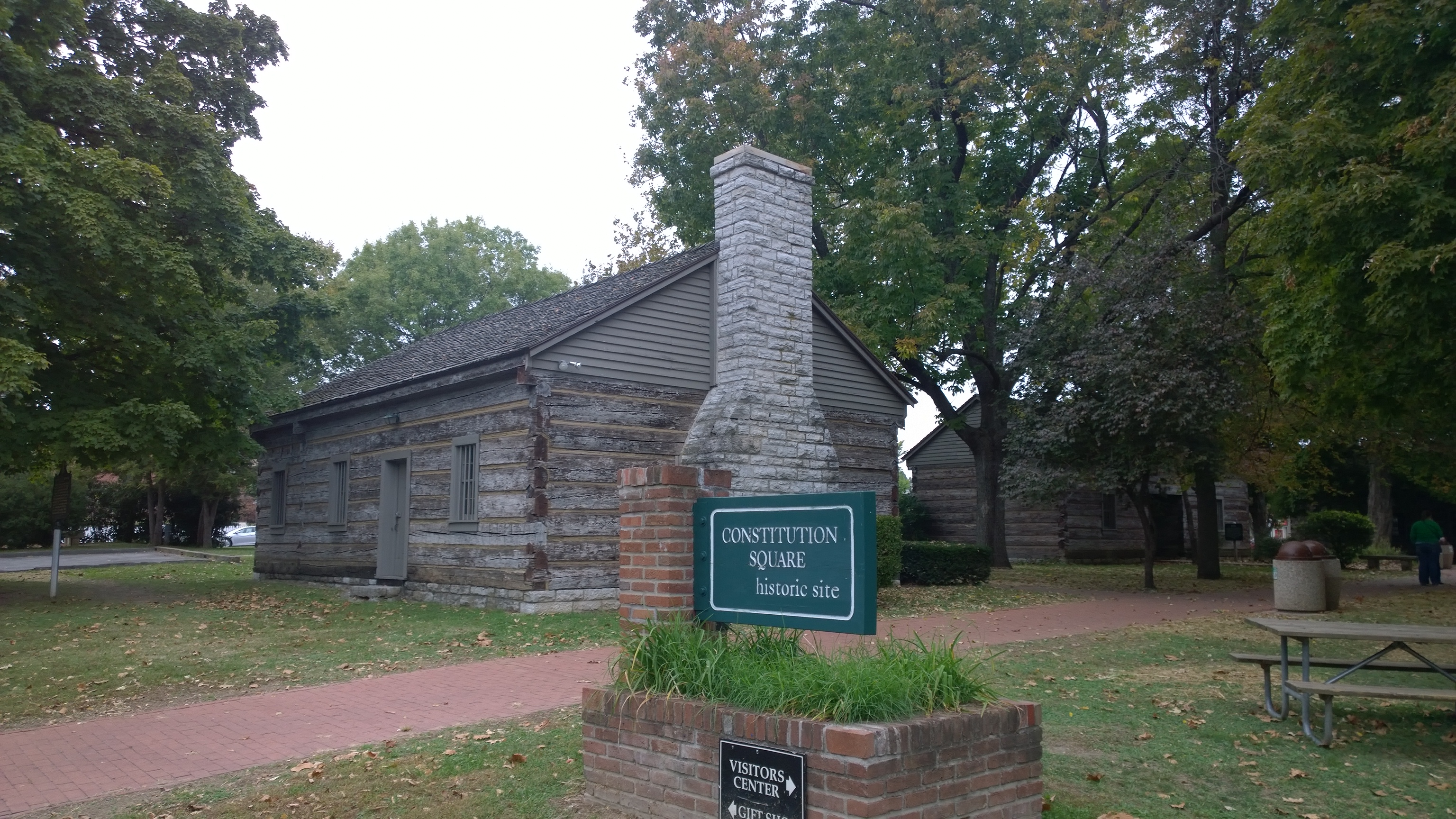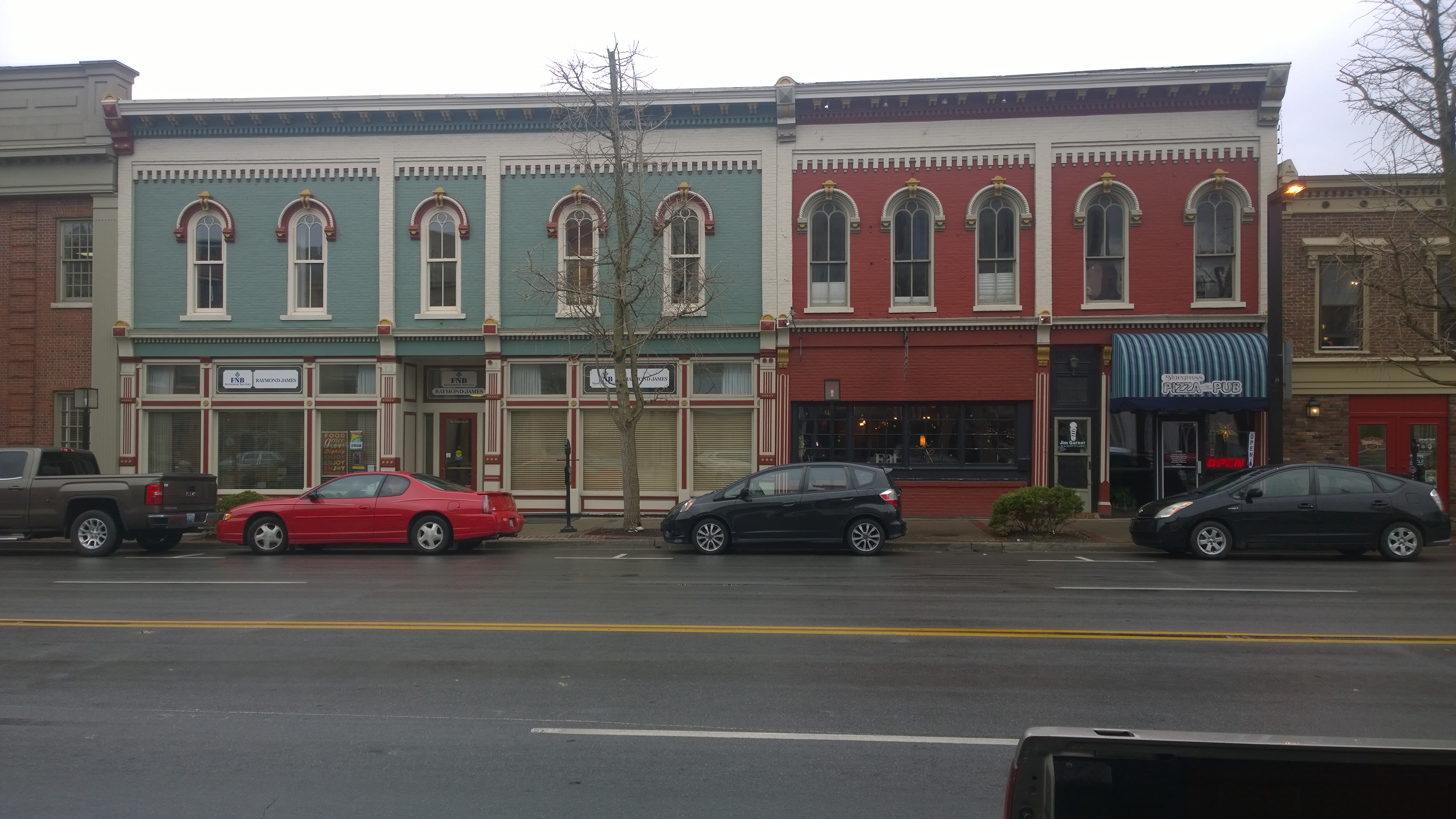Historical Marker: # 1279 “First Crop”

Location:
Boyle County Courthouse Square, Danville, KY
The Marker Text:
“Kentucky’s first recorded hemp crop, 1775, was on Clark’s Run Creek, near Danville. Grown by Archibald McNeill, who brought the first seed with him when he located here. Hemp production spread slowly throughout the area, but Boyle County later became one of 10 Bluegrass counties which together produced over 90% of the entire US yield in 1889.”
Boyle County’s Hempstory:
For visitors looking to experience some of Kentucky’s frontier history, Danville, in Boyle county is a must place to visit.
Early History:
The “first recorded hemp crop” in Kentucky, according to the marker, planted by Archibald McNeill. According to historian Lewis Collins, McNeill was one of the 54 men that accompanied Captain James Harrod on his second attempt to settle the Kentucky territory in the Spring of 1775.
In 1774 Harrod, and a group of 32 men, attempted to settle central Kentucky. Their attempt was thwarted by Indians, who attacked Harrod’s party. This raid and several others culminated in the military action known as Dunmore’s War. This action resulted in the Treaty of Camp Charlotte, where Indian hunting rights south of the Ohio river were forfeited.
In 1775 the race was on, Harrod returned with an even larger contingent of settlers, including Archibald McNeill. Collins credits McNeill with planting the First Seed Hemp in 1775. McNeill apparently died not long after. In 1779 a Fincastle County (Virginia) clerk recorded a land deed for Peggy McNeill. A notation in the records indicates she was Archibald’s widow.
Other early settlers saw opportunities in hemp. John Reed, a settler of Irish descent, arrived in Danville from Maryland around 1779. Reed previously manufactured linen in Ireland. John came to the colonies to pursue economic opportunity. He was one of Danville’s first hemp industrialists.
In 1802 Rhode Island rope maker Jonathan Nichols settled in Danville. Just 21 years old when he arrived in Kentucky, Nichols started a successful rope walk. He quickly established himself as a leading citizen. Nichols married Martha Reed Ball, John Reed’s granddaughter, in 1808. Nichols business acumen and connections allowed him to build a business beyond Danville and the immediate area.

The business office for Nichols ropewalk still stands at the corner of Broadway and Wilderness road. His first home is located across the street. Nichols and his brother Joshua quickly became a leading citizens.
Unique Story:
Another fascinating thread in the Boyle County hempstory is the narrative of Dennis and Diadaemia Doram. Dennis was born into slavery in 1796. His mother, Lydia Barbee was owned by General Thomas Barbee, who was also Lydia’s father. His father, Dennis Sr., was a free man.
A provision in General Barbee’s will freed his enslaved progeny. His grandson Dennis, freed at age 31, quickly established himself as a sharp businessman. He married Diadaemia Gibson of St. Louis in 1830. One of the Dennis’s documented business is a ropewalk he operated between 1835-1839 in Danville. Some evidence suggests he may have operated as many as 3 ropewalks including one in Shelby City and another in Goresbury.
Dennis Doram owned as many as 11 enslaved people. He often entered into contracts with these enslaved people that offered freedom in exchange for their labor over a period of time.
Danville Hemp in the 20th Century
Centre College’s Combs Center occupies a former hemp warehouse originally built around 1902. George Cogar, at the time Danville’s leading hemp merchant, occupied the building until the 1920’s. He sold the business to Hudson Banks and J. C. Davis who continued to buy and sell hemp. In August 1940 they were awarded a contract with the US Navy worth $12,600.
Other points of interest in historic Danville include:

Above all, celebrate Kentucky’s frontier history at Constitution Square. The 3 acre historic site includes several preserved buildings. If you’re looking for ideas on other things to do in the area visit the Tourism Bureau located in Grayson’s Tavern. Located at the Southeast corner of the square, Grayson’s Tavern was a hot spot of frontier political activity. While Combs Hall at Centre College is former hemp warehouse at the end of Walnut St.
Grab a Pie and a Pint:
While in Danville check out Bluegrass Pizza & Pub for great pizza and craft beer on tap.

There is a rope motif to the moldings over the windows. This was often used to indicate a connection to the hemp industry. So far, this detail has been identified on homes and businesses in Lexington and Georgetown. No connection to the hemp industry has been established to this location. It is possible the window frames were salvaged from another local structure
